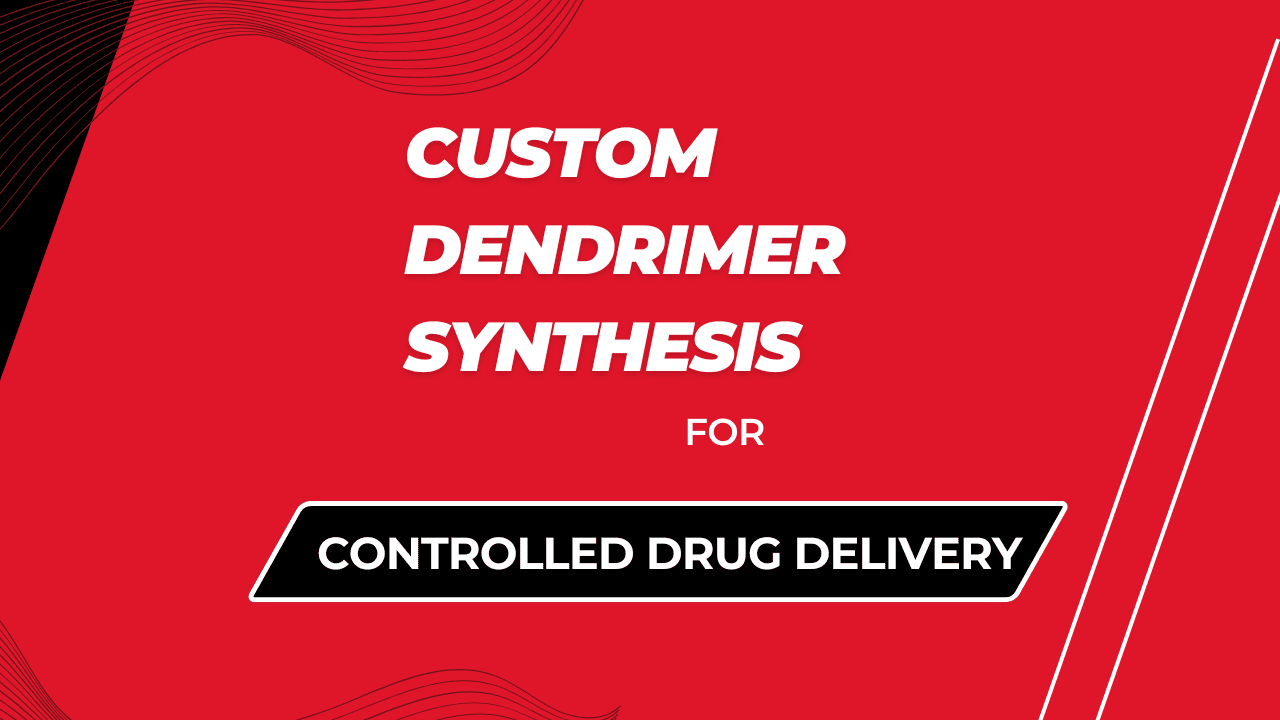Introduction
Oral drug delivery is the most common and preferred route for administering medications due to its convenience, ease of use, and patient compliance. However, the oral route also presents significant challenges, including poor drug solubility, instability in the gastrointestinal (GI) environment, and low bioavailability of many therapeutic agents. To overcome these challenges, innovative drug delivery systems are required, and one promising approach involves the use of cyclodextrin-based dendrimers. These nanostructured carriers combine the advantageous properties of cyclodextrins and dendrimers to enhance the solubility, stability, and bioavailability of drugs, making them particularly well-suited for oral administration. In this blog, we will explore the role of cyclodextrin-based dendrimers in oral drug delivery, examining their unique properties, potential benefits, and future prospects in this important area of pharmaceutical development.
The Challenges of Oral Drug Delivery
Oral drug delivery is often hindered by several physiological and chemical barriers. Many drugs, particularly those that are hydrophobic, have poor water solubility, which limits their absorption in the gastrointestinal tract. Additionally, the harsh conditions of the stomach, including acidic pH and digestive enzymes, can degrade sensitive drugs before they reach their site of action. Once absorbed, drugs must pass through the liver, where they may undergo extensive first-pass metabolism, further reducing their bioavailability. These challenges necessitate the development of advanced drug delivery systems that can protect the drug, enhance its solubility, and improve its absorption.
Cyclodextrin-Based Dendrimers: A Multifunctional Delivery System
Cyclodextrin-based dendrimers represent a novel class of nanocarriers that can address the challenges of oral drug delivery. Cyclodextrins are cyclic oligosaccharides with a hydrophobic cavity that can encapsulate poorly soluble drugs, thereby increasing their solubility and stability in aqueous environments. Dendrimers, on the other hand, are highly branched, three-dimensional macromolecules with multiple functional groups on their surface. By combining these two components, cyclodextrin-based dendrimers offer a multifunctional platform for oral drug delivery.
The hydrophobic core of the cyclodextrin unit can host hydrophobic drug molecules, protecting them from the acidic and enzymatic conditions of the stomach. Meanwhile, the dendrimer structure provides a high degree of control over the size, shape, and surface properties of the nanocarrier, allowing for the attachment of targeting ligands, PEGylation, or other modifications to improve the drug’s bioavailability and reduce its degradation in the GI tract. This unique combination of properties makes cyclodextrin-based dendrimers highly effective in enhancing the oral bioavailability of a wide range of drugs, including small molecules, peptides, and proteins.
Enhancing Drug Solubility and Stability
One of the primary advantages of using cyclodextrin-based dendrimers in oral drug delivery is their ability to enhance the solubility and stability of poorly water-soluble drugs. When a hydrophobic drug is encapsulated within the hydrophobic cavity of the cyclodextrin unit, its apparent solubility in aqueous environments is significantly increased. This solubilization effect not only improves the drug’s absorption in the GI tract but also protects it from degradation by digestive enzymes and acidic conditions.
Furthermore, the dendrimer component of the nanocarrier can be engineered to release the drug in a controlled manner, ensuring that the drug remains stable until it reaches the site of absorption. This controlled release mechanism is particularly important for drugs that are prone to degradation in the GI tract or that require a sustained release profile to maintain therapeutic levels in the bloodstream.
Overcoming First-Pass Metabolism
First-pass metabolism is a major challenge in oral drug delivery, as it can significantly reduce the bioavailability of drugs that are metabolized in the liver. Cyclodextrin-based dendrimers offer a potential solution to this problem by protecting the drug during its transit through the GI tract and facilitating its absorption in the intestines, where it can enter the systemic circulation directly, bypassing the liver.
In addition, the surface of the dendrimer can be modified with targeting ligands that enhance the drug’s uptake by enterocytes (intestinal epithelial cells), further increasing its bioavailability. By improving the drug’s absorption and reducing its degradation by liver enzymes, cyclodextrin-based dendrimers can help to overcome the limitations of first-pass metabolism and improve the overall therapeutic efficacy of orally administered drugs.
Future Prospects and Applications
The potential applications of cyclodextrin-based dendrimers in oral drug delivery are vast and varied. They are particularly well-suited for the delivery of poorly water-soluble drugs, which represent a significant portion of new chemical entities in drug development. Additionally, their ability to protect sensitive molecules, such as peptides and proteins, from degradation in the GI tract opens up new possibilities for oral administration of biologics, which have traditionally been limited to parenteral routes.
In the future, we can expect to see continued advancements in the design and synthesis of cyclodextrin-based dendrimers, with a focus on optimizing their drug-loading capacity, release kinetics, and targeting capabilities. As our understanding of the interaction between these nanocarriers and biological systems deepens, we may also discover new ways to exploit their unique properties for the oral delivery of a broader range of therapeutic agents.
Conclusion
Cyclodextrin-based dendrimers represent a promising new frontier in oral drug delivery, offering a versatile and effective platform for improving the solubility, stability, and bioavailability of a wide range of drugs. By addressing the challenges of poor solubility, instability in the GI environment, and first-pass metabolism, these nanocarriers have the potential to significantly enhance the efficacy of orally administered medications. As research in this field continues to advance, cyclodextrin-based dendrimers are likely to play an increasingly important role in the development of new and innovative oral drug delivery systems, ultimately improving patient outcomes and expanding the range of therapeutics available for oral administration. At Resolvemass Laboratories, we are committed to exploring and advancing the potential of cyclodextrin-based dendrimers in oral drug delivery, helping to shape the future of this exciting and rapidly evolving field.
